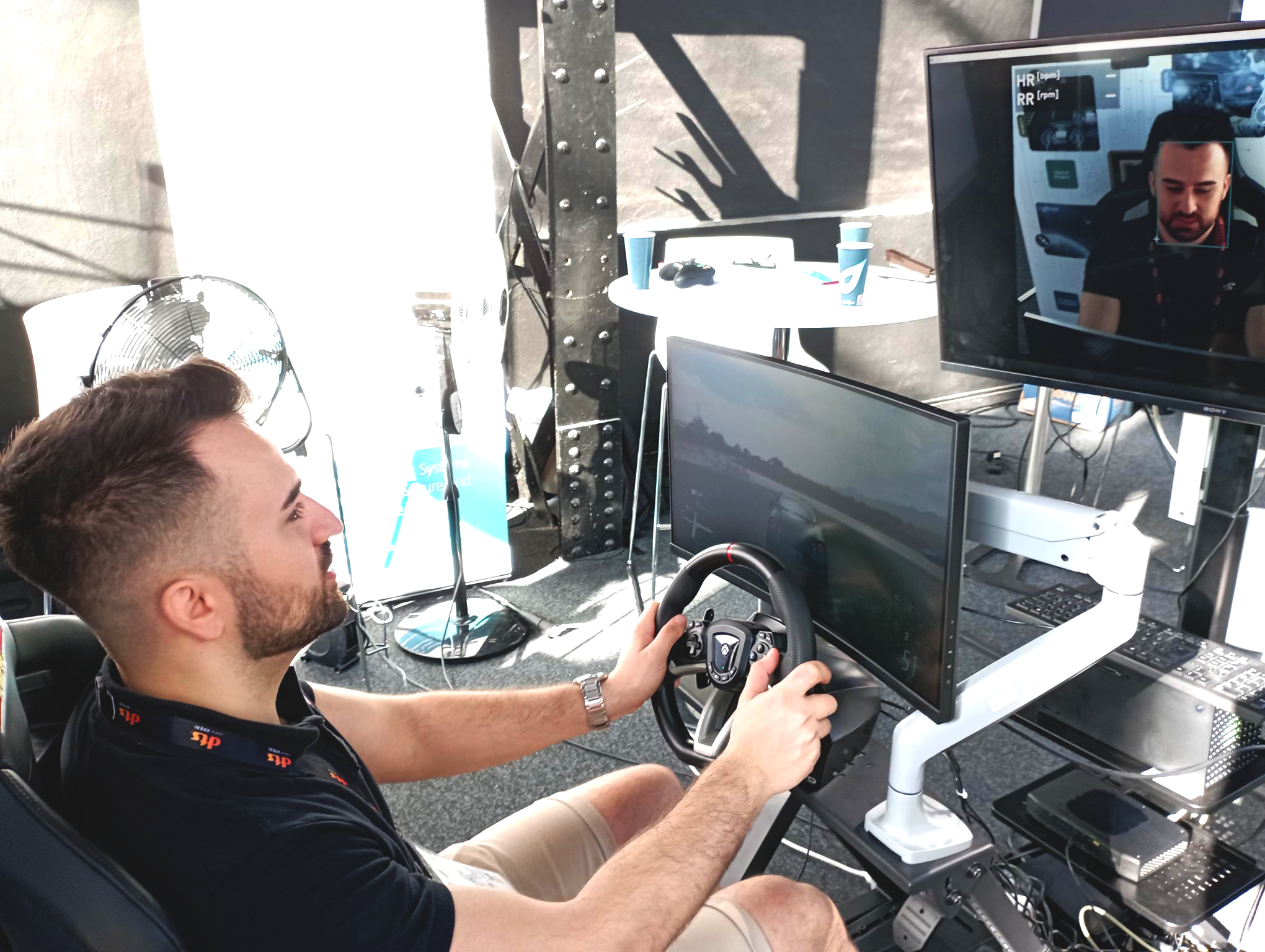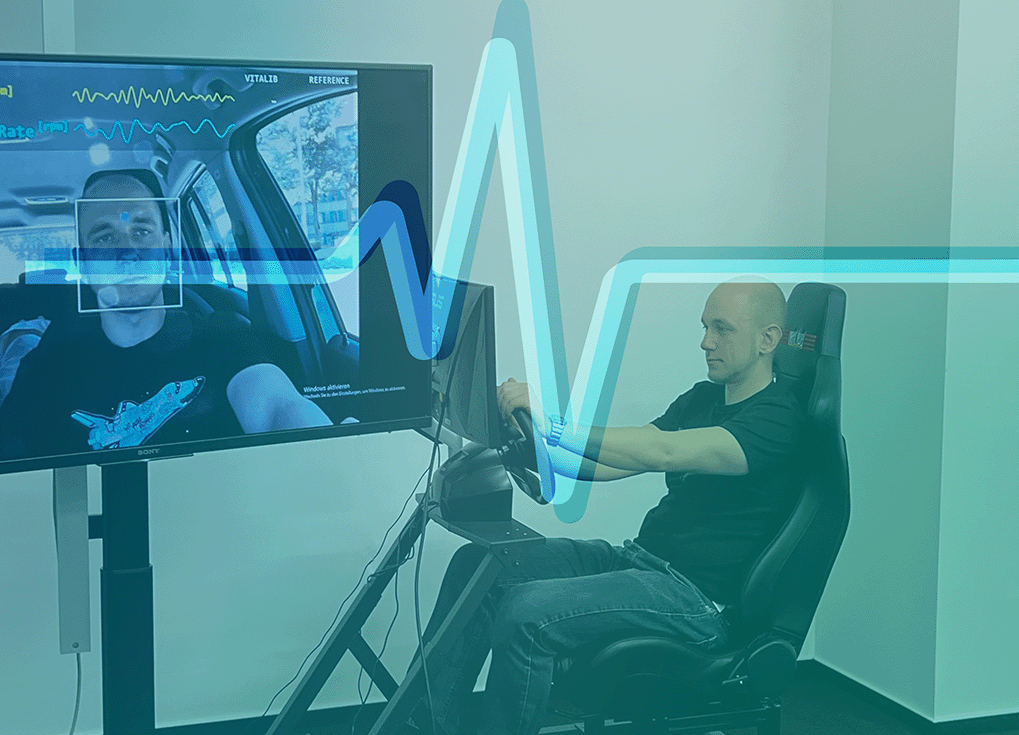Research and development | Press release | Reading time 2 Min.
Vital signs: Improving the safety and comfort of vehicles using AI algorithms
The transport of tomorrow will not only be autonomous — it will also be comfortable and safe. The Fraunhofer Institute for Microelectronic Circuits and Systems IMS presents AI algorithms that massively improve transportation safety and comfort. To achieve this, optical sensors record vital signs, such as heart and respiratory rates. This data is processed by specially developed AI algorithms. The algorithms are modular and easy to integrate into cars and existing systems. They offer entirely new measurement options for car manufacturers. This development is supported by the European New Car Assessment Programme (Euro NCAP), which requires the installation of internal cameras in vehicles.
The vehicles of the future will not only monitor other road users. Sensors in the car interior will work with AI algorithms to make travel significantly safer and more comfortable for the driver and passengers: »Intelligent image and signal processing, paired with AI-based algorithms, can extract minute changes in intensity or micromovements on the skin and in the entire human body. The signals recorded can be used to determine vital signs such as heart and respiratory rate,« explains Dr. Christian Wiede, head of Embedded AI at Fraunhofer IMS. A person’s respiratory rate is visible, for example, through slight chest movements and can thus be measured, whereas the little-known optical technique of photoplethysmography allows heart rate to be monitored. This technique relies on the heart’s contractions, recording subtle changes to the intensity of light on the skin. These changes, invisible to the eye, can be detected by standard cameras.

Benefits for tomorrows transportation

In terms of comfort and safety, this development offers many advantages to the transport of tomorrow: By monitoring the vital signs of car, industrial vehicle and train drivers, emergencies can be anticipated and, in best-case scenarios, avoided. Comfort functionalities such as temperature, sound and light controls can also be better tailored to the driver, improving the driving experience.
This kind of camera-based monitoring is contact-free and does not require any active input from the driver. This not only increases comfort, but also acceptance of this type of system. Fraunhofer IMS has developed a modular software library, which facilitates integration into existing vehicle applications and assistance systems. This ensures that integration is possible without relying on car manufacturers or suppliers.
Example video
In the future, it will be possible to add further parameters, such as blood pressure, stress symptoms, alcohol intoxication and more to the system.
Learn more about our contactless vital signs measurement.
Fraunhofer IMS
For over 30 years scientists at Fraunhofer IMS in Duisburg have been dealing with the development of microelectronic circuits, electronic systems, microsystems and sensors. Because of its comprehensive know-how, the access to technology and the high-quality development work, the Institute is a globally recognized partner for the industry. In four business units and core competencies each, Fraunhofer IMS is dedicated to applied research, advance development for products and their applications. High-quality, efficient and marketable technologies and procedures that are used in a very wide range of branches take center stage in contract work.
www.ims.fraunhofer.de/en.html
Research Fab Microelectronics Germany (FMD)
The Fraunhofer IMS is part of the Forschungsfabrik Mikroelektronik Deutschland (FMD) - a cooperation of the Fraunhofer Group for Microelectronics with the Leibniz Institutes FBH and IHP. As a pioneer for cross-site and cross-technology collaboration, the FMD addresses current and future challenges in electronics research and provides important impulses for the development of elementary innovations for the world of tomorrow.
https://www.forschungsfabrik-mikroelektronik.de/en.html | Also visit our virtual 3D showroom at https://fmd-insight.de/showroom